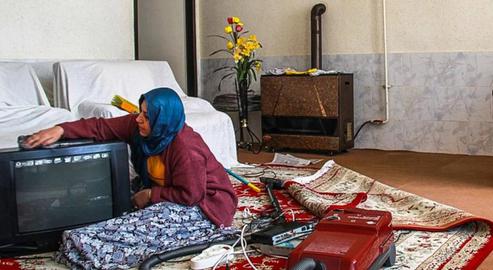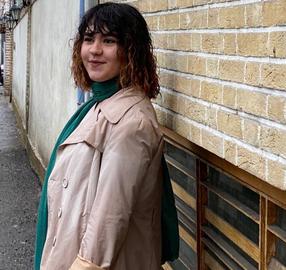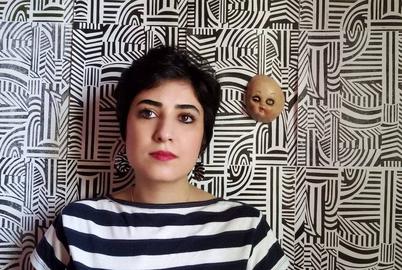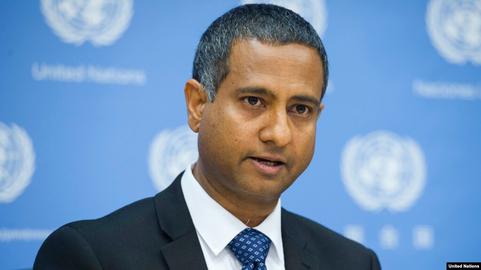In 2020, according to official figures, just 17.9 percent of Iranian women were in paid full-time or part-time employment. Because of obstacles in the work environment, many more will have been engaged in housekeeping: forgoing paid work in order to perform day-to-day household chores such as cooking and cleaning, as well as child-rearing and caring for sick, older and disabled family members.
Even now in 2022, some try to maintain that housekeeping is not a job. Most reputable international institutions consider it otherwise, including the International Labor Organization (ILO). But the ILO has also pointed out that the brunt of domestic labor falls on the shoulders of women regardless of whether or not they are also in employment. Despite their qualifications, this means that many middle-class, urban women in Iran end up staying at home and making the best of it rather than pursuing a career.
Mahtab, a 46-year-old graduate in English literature, has been a housewife for almost 25 years. “Early on after I was married, I started working at the language school owned by my brother-in-law,” she told IranWire. “But they actually deposited my salary in my husband’s bank account. So I decided to stop. I stayed at home and brought up my children.
“At first I was very unhappy about being a housewife; I had no inclination toward it and I wanted to be a language teacher. I felt so humiliated, and I wondered why I’d spent so long studying. If I was supposed to be in this situation I could have taken it more easily. But, well, even if I worked, my salary wasn’t mine.”
Zahra, a resident of Ardebil in northwestern Iran, also in her 40s, has a law degree and works as a consultant at a legal firm, but also finds herself doing the brunt of the housework. “I like to work outside [the home], too,” she said, “but it’s a tough combination. We don’t have enough hands to do everything by ourselves.
“By working outside home, I socialize and gain financial independence. But taking care of my husband and children at home also makes me happy. The see their home as a safe haven and this fills me with joy. In my view, a literate, working mother can be a good housekeeper as well.”
But Zahra, like others, laments that many women feel pushed in the latter direction: “In Iran, employers always want to give their staff the lowest possible salary, especially if that employee is a woman. This is all the more so in small traditional cities like Ardebil.”
Leila, 28, takes a different view She moved from a town near Tehran to West Azerbaijan province and has continued to scrape a living for herself despite the obstacles. “In my view,” she said, “housekeeping is like filling the backpack of somebody else who wants to climb a mountain. You do it, but it’s him who makes it to the summit with joy and pride. Anything you do is just your duty. And they’ll admonish you if something isn’t clean enough. So, early on, I went to work – even though in this little town they pay women a pittance. Practically nothing remains of my salary. But I feel good about myself and people respect me more.”
Working Women Still Made Unwelcome
In 2019, the unemployment rate among economically-active Iranian women was twice that of men. One survey by the Statistical Center of Iran found just four million women held down an external job, many with great difficulty.
Mansoureh Mousavi, an author and sociologist, says many Iranian women encounter a mismatch in the workplace between their skill level, experience and interests and what they end up receiving, in terms of job title, salaries and bonuses, and treatment in the workplace, as well as dealing with harassment and sex discrimination.
This has become all the more pronounced since Covid-19, she says, with many private-sector firms having to downsize: “When companies want to fire their workers, it is the women who are dismissed first. The pretext is that they are not the main household breadwinner. Women are often not insured either, and the way female laborers are treated is not always lawful. Employers often cheat when it comes to women’s wages and working hours.”
On top of this, Mousavi agrees, many employed women also double as housekeepers. “In Iranian society, they groom girls to be clean, tasteful homemakers. At some point in their lives, all girls expect themselves to perform this role, and to face problems if they can’t perform it well.”
Housekeeping is Not the Easy Option
Even in the home, there is no guarantee that Iranian housekeepers will hold a greater share of the power. Parastoo, 35, was a hairdresser for 12 years but became a housewife after the birth of her children, whereupon she was forced to move to her in-laws’ hometown. “As a housewife, I was in a terrible financial and psychological state,” she said. “I found housekeeping a futile, exhausting job. Futile because whatever you, do somebody else can ruin it in the blink of an eye. You have no set working hours, you can’t rest on weekends, and not only are you not paid anything, but your work isn’t appreciated either.”
In Parastoo’s view, the sidelining of housewives is “perpetual and inevitable”. “The worst times are when, as a housewife, you’re exhausted and are told, ‘Well, don’t do it then!’. As though the house stays neat and orderly by itself, and the meals cook themselves.”
The Social Impact of Chosen Vocations
Choosing to either stay at home or pursue employment can also have a bearing on women’s social standing, as well as the money in their pockets and the time on their hands. Women in employment, Mousavi says, often find themselves with more bargaining power in family-related decision-making.
But this, in turn, is class-related: “Working-class women, especially those in the service sector who also do housekeeping and take care of their children, do not benefit from a higher social standing. And even then, because of sex discrimination, they aren’t paid much and have no control over the money they do make.”
Ethnic discrimination can also play a role, according to Mousavi. “In a society where even men are denied high-level and management jobs because they belong to a given ethnic group, women’s situation is all the more complicated. Kurdish, Baluchi and Arab women experience much more job application rejections than Persian women in Tehran. These realities – of gender, class and ethnicity – set a women’s choice between working at home or outside home.”
Related coverage:
UN Rep: Please Note Iran's Remarkable Achievements on Women's Rights
Sun House, a Women's NGO in Tehran, 'Forced' to Close its Doors
Mashhad's Friday Imam: Women City Councilors Shouldn't Talk 'Like Men'
More Than 900,000 Iranian Women Out of Work Post-Pandemic
Tehran's War on 'Abnormal' Clothing Reaches New Heights
Figures Reveal the Unexpected Provinces with Highest Child Marriage Rates in Iran
The Ones That Got Away: Iranian Women Mourn Girlhoods Lost to Child Marriage
visit the accountability section
In this section of Iran Wire, you can contact the officials and launch your campaign for various problems
























comments